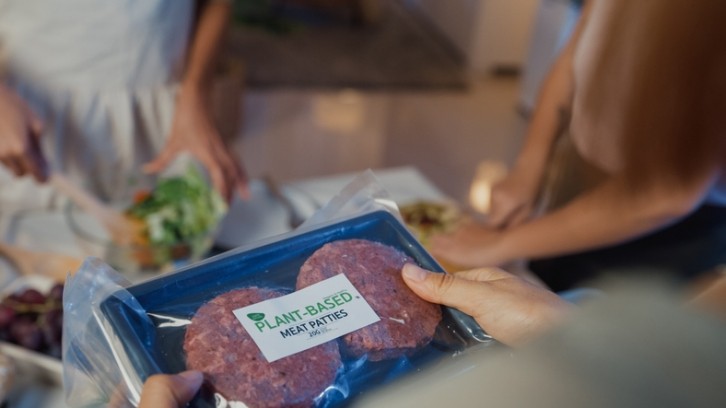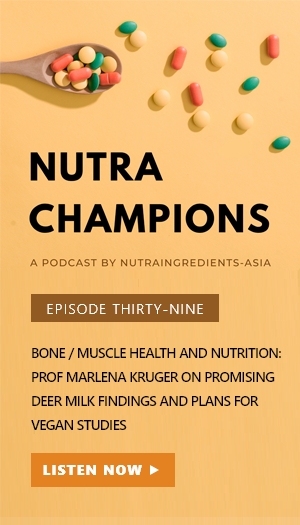Does plant-based equal healthier? Researchers question nutritional value of some supermarket products in Australia

Researchers collected nutritional compositions of plant-based alternatives to meat and dairy products from Australian supermarkets and compared them to foods within the Australian Food Composition Database (AFCD).
They found that the nutrient profile of supermarket products varied widely and urged authorities to maintain an up-to-date database that reflects food supplies.
The results showed that 67% of dairy alternatives and 33% of meat alternatives were not found in the AFCD. Additionally, only 13% of dairy alternatives were within the reference value for sugars. In other words, the sugar content of most dairy alternatives deviated significantly from the recommended or expected level by more than 10%.
The AFCD provides nutrient reference data for selected foods and beverages. It is used extensively for research purposes by nutritionists and dietitians, as well as in practice and policy, and by health professionals for nutritional analyses and food labelling. More regular updates will enable closer monitoring of food supplies for the health benefit of consumers.
A salty revelation
“We found some products are so high in salt or saturated fat, we’d struggle to call them ‘healthy’,” said Laura Marchese and Dr Katherine Livingstone, PhD student and senior research fellow respectively at Deakin University.
The sodium content varied from 1 milligram per 100 grams in products such as tofu, to 2,000mg per 100g in items such as plant-based mince products. This means we could eat our entire daily recommended sodium intake in just one bowl of plant-based mince.
For plant-based cheeses, their sodium content varied from 390mg to 1,400mg per 100g.
The researchers also observed a consistent trend of plant-based meats getting saltier. An audit of 66 plant-based meat products in Australian supermarkets conducted in 2014 found sodium ranged from 316mg in legume-based products to 640mg in tofu products per 100g. In a 2019 audit of 137 products, the range was up to 1,200mg per 100g.
The dairy alternatives did not fair very well in this audit either.
Not the best (dairy) alternative
Calcium was only labelled on a third of plant-based yoghurts, and only 20% of supermarket options met the recommended 100mg of calcium per 100g.
For plant-based cheeses, 92% were not fortified with calcium, and saturated fat ranged from 0g to 28g per 100g.
The saturated fat content of plant-based milks was assessed too.
Coconut-based milks had on average up to six times higher saturated fat content than almond, oat or soy milks. Previous audits also found coconut-based milks were much higher in saturated fat than all other categories of milks.
However, the researchers found an improvement in the proportion of plant-based milks that were calcium-fortified.
“Of the fortified milks in our audit, almost three-quarters (73%) contained the recommended amount of calcium – at least 100mg per 100mL. This is good news as a 2019–2020 audit of 115 plant-based milks from Melbourne and Sydney found only 43% of plant-based milks were fortified with calcium,” said the researchers in The Conversation.
So, what caused the apparent lack of adherence to the AFCD?
The study
Due to the rise in plant-based alternative products available in the Australian food supply, the 2022 AFCD release included a new food category specific for dairy and meat substitutes. This new category contains 29 food and beverage items.
“While this is an increase on past iterations of the database, food composition databases can only include a select number of foods due to feasibility reasons and require regular updates to capture new products available in the food supply. As a result, they may become outdated soon after their release, particularly for fast growing categories,” wrote the researchers in Journal of Food Composition and Analysis.
They observed that few studies have investigated whether the meat and dairy alternatives available in the food supply reflects the products available and nutrient composition described in the national food composition database. Thus, they conducted this study to highlight the importance of a reliable and up-to-date food composition database.
From June to October 2022, the FoodTrack methodology was used to collect information for products from four major supermarkets across Melbourne: Woolworths, Coles, ALDI, and Independent Grocers of Australia. Eight supermarkets – two of each of the four chains – were covered in total.
FoodTrack was developed by the Commonwealth Scientific and Industrial Research Organisation (CSIRO) and the National Heart Foundation of Australia to create a database of foods and drinks sold in major Australian supermarkets.
The products – a total of 704 unique items that included 249 dairy alternatives and 455 meat alternatives – were then matched to their corresponding AFCD food item code, or the closest fit if it wasn’t in the code.
All mandatory Nutrition Information Panel (NIP) variables were assessed: energy, protein, fat, saturated fat, carbohydrates, sugars, and sodium. Additional non mandatory NIP categories that are important in the context of meat and dairy alternatives were also included: calcium, and dietary fibre. The proportion of supermarket products that were considerably different in their nutrient profile to AFCD products was also assessed.
A ‘considerable’ difference was defined as 10% above or below the nutrient composition of the corresponding AFCD item. The percentage of supermarket products outside this 10% threshold was calculated for each category.
“Taking a best fit approach, there was a high proportion of products available instore that were more than 10% different from an equivalent item in the Australian food composition database in terms of nutrient composition. In particular, the variety of canned beans/legumes, cheese substitutes, and flavoured milk substitutes are not well reflected in the AFCD,” said the researchers.
Dealing with the mismatch
Two-thirds of dairy alternatives and one third of meat alternatives were not reflected in the AFCD. This was due to more product options within categories, such as the variety of canned beans and flavoured milk substitutes available in supermarkets. There is also a greater variety of main ingredients used, most notably for cheese substitutes.
The findings highlight the challenges of food composition databases in keeping up to date with the fast-growing plant-based sector.
“This study has highlighted the significance of maintaining an up-to-date food composition database that reflects the food supply. This has implications for monitoring population nutrient intakes, informing policy initiatives and tracking changes in the composition of the food supply as a result of product innovation,” said the researchers.
“Misalignment between instore product availability and food composition data may impair industry, government, and public health efforts. It may also impair government and industry to track progress against targets for improving the healthiness of the food supply, for example in Australia tracking against the reduction targets set out in the National Healthy Food Partnership Reformulation Program.”
Source: Journal of Food Composition and Analysis
DOI: https://doi.org/10.1016/j.jfca.2024.106017
“Comparison of the nutritional composition of supermarket plant-based meat and dairy alternatives with the Australian Food Composition Database”
Authors: Laura E. Marchese, Gilly A. Hendrie et al.
Healthier Product Innovation will be a major topic of focus at Growth Asia Summit 2024 – join us in Singapore to learn about market opportunities and glean insights from major industry experts. Find out more here.








